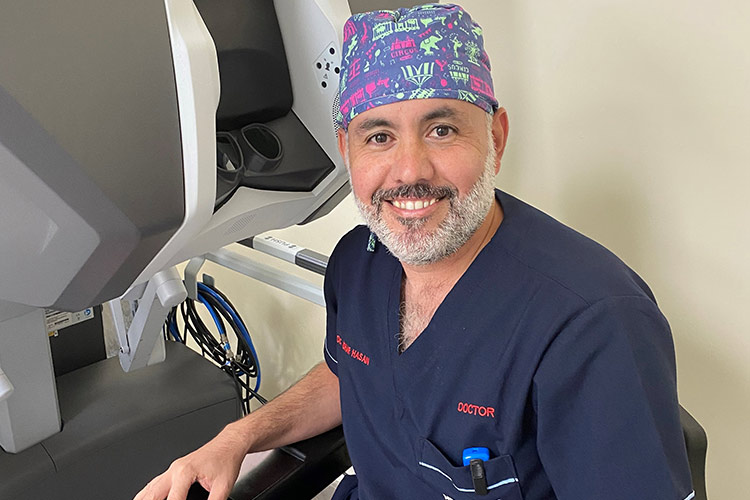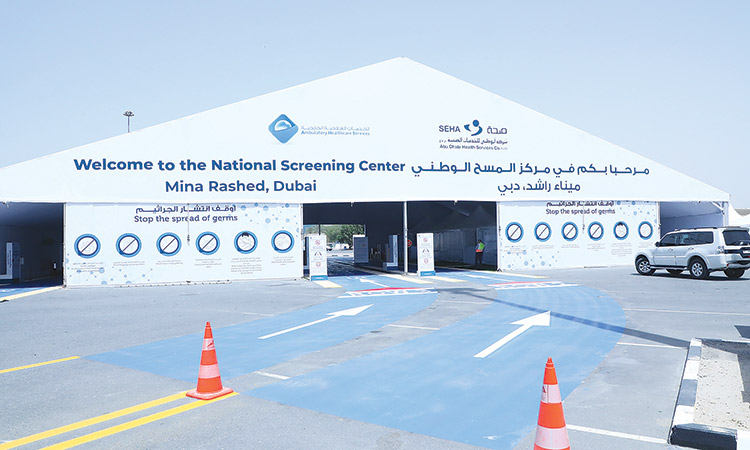Gastroenterologist calls for liver health awareness

The photo has been used for illustrative purposes.
Mariecar Jara-Puyod, Senior Reporter
A Gastroenterology specialist in Dubai, also an internist with over 25 years of work experience, has supported the call of a colleague in Abu Dhabi for more awareness campaign as well as for improved testing and diagnostics on liver health.
Dr Sanjeev Kumar Rastogi of Canadian Specialist Hospital shared his views with Gulf Today as July 28 is the “World Hepatitis Day.”
Rastogi’s opinion was also sought as the broadsheet, published almost a week back news on the urgency to take up more liver health and diseases discussions and the inclusion of public health programmes toward this end, quoting Dr. Farhana Bin Lootah of the Imperial College of London Diabetes Centre-Abu Dhabi.
Lootah was among the 11-man Steering Committee behind “Creating a Policy Narrative around NASH (Non-Alcoholic Steatohepatitis) in Europe and the Middle East.”
NASH is a form of worsened Non-Alcoholic Fatty Liver Disease (NAFLD).
Since NAFLD, NASH and Hepatitis are all liver diseases, this reporter asked Rastogi on whether these are co-related.
Meanwhile, the NASH-NAFLD policy paper carried the following proposals:
* Inclusion of liver health and diseases in public health policies, programmes and strategies towards the mitigation and prevention of obesity among children and the youth.
* More investments on liver health and complications data collection towards better liver health and diseases management by all stakeholders led by the public health system.
* Education programmes on liver health and diseases particularly on NAFLD and NASH among all healthcare workers and medical practitioners.
* Promotion of multi-disciplinary guidelines and care for metabolic syndrome and NAFLD/NASH management among all healthcare workers and medical practitioners.
* Inclusion of screenings and other diagnostics tests in the public health system particularly among the high risks.
* Promotion of proper and correct treatment options as well as effective laboratory tests.
On Hepatitis, Rastogi said that on the global scale, the most common is that of Viral Hepatitis B and C, “associated with high levels of mortality and morbidity, and the root causes of liver cirrhosis and cancer.”
World Health Organisation (WHO) 2019 data showed 325 million around the world are living with Hepatitis B and C. Of these, 27 million have been infected with the B virus since 2016 while 13.1 million have been sick with the C virus since 2015.
In 2017, 1.75 million developed chronic Hepatitis C infection.
Hepatitis is a condition whereby the liver is inflammed caused by viral infection, “a secondary result of drugs, toxins, alcohol and certain medications.” Rastogi said Hepatitis, NAFLD and NASH are not co-related.
But as a consequence of more research on liver diseases since 1999, recent documentations have revealed “obesity, diabetes, hypertension and dyslipidemia are high risk factors that can lead to the deposition of fat in the liver which if increased over time will lead to the inflammation of the liver cells called NASH.”
Like alcohol and Hepatitis B and C which damage the liver, NAFLD/NASH “can further progress to cirrhosis and liver cancer in the long run.”
Rastogi echoed the proposals of Lootah and her co-authors as he referred to the WHO data in the last five years: “Hepatitis B has been the highest in the African and Western Pacific Regions. Eastern Mediterranean Region and Europe have shown the highest incidence in the world for Hepatitis C.” “Another study depicted that deaths due to Hepatitis B and C are as common as to those due to tuberculosis.”
WHO director general Dr Tedros Adhanom Ghebreyesus said: “On World Hepatitis Day, we are calling for bold political leadership, with investments to match. We call on all countries to integrate services for Hepatitis into benefit packages as part of their journey towards universal health coverage.”
Ahead of World Hepatitis Day (28 July), the world Health Organisation,WHO, calls on countries to take advantage of recent reductions in the costs of diagnosing and treating viral hepatitis and scale up investments in disease elimination.







